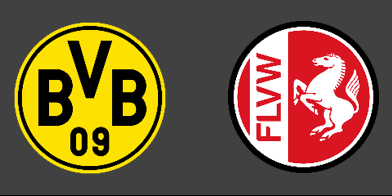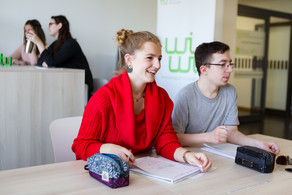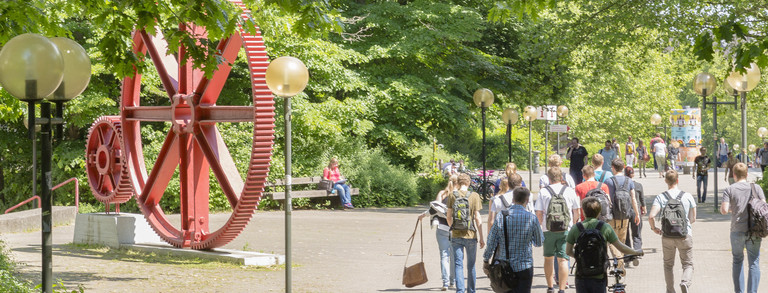TU Dortmund researches women's soccer

As part of a project seminar at the Professorship of Marketing at TU Dortmund University, which was organized according to the principle of "learning by consulting", 17 students dealt with the advancing professionalization of women's soccer. In close cooperation with the women's soccer department of Borussia Dortmund and the Football and Athletics Association of Westphalia (FLVW), individual students worked on market research tasks and developed solutions that can be implemented in marketing measures. One topic area consisted of a targeted survey of conditions that encourage girls and young women to take up soccer and obstacles that lead to rejection. Family and friends, as well as the presence of women's soccer and female footballers in the media, are key drivers of active interest. In contrast, the lack of support in schools and traditional prejudices in the population slow down the willingness to play soccer.
Investigations into the conditions at club level revealed a great openness and willingness on the part of male-dominated boards to introduce or continue to promote women's teams. Challenges arise in terms of club equipment, as more changing rooms and showers are needed, for example. The lack of interest from local girls is also lamented, although playing communities across club boundaries are seen as a good opportunity to offer comprehensive playing opportunities.
Some of the research papers focused on the career patterns of female players in the Bundesliga and lower divisions. In this context, it was explored which pitfalls and barriers should be removed by clubs and associations in order to motivate players to invest more time and energy in their sporting development.
Another focus was on the examination of women's football at BVB. For example, the development and career patterns of BVB players were analyzed, the satisfaction of visitors to BVB matches was surveyed and the website was checked for user-friendliness.
Overall, the students' work for BVB and the FLVW provided a solid overview of all publications on women's soccer and was able to empirically substantiate or verify assumptions and insights that were available to those responsible and provide a wealth of improvements for marketing in women's soccer.






